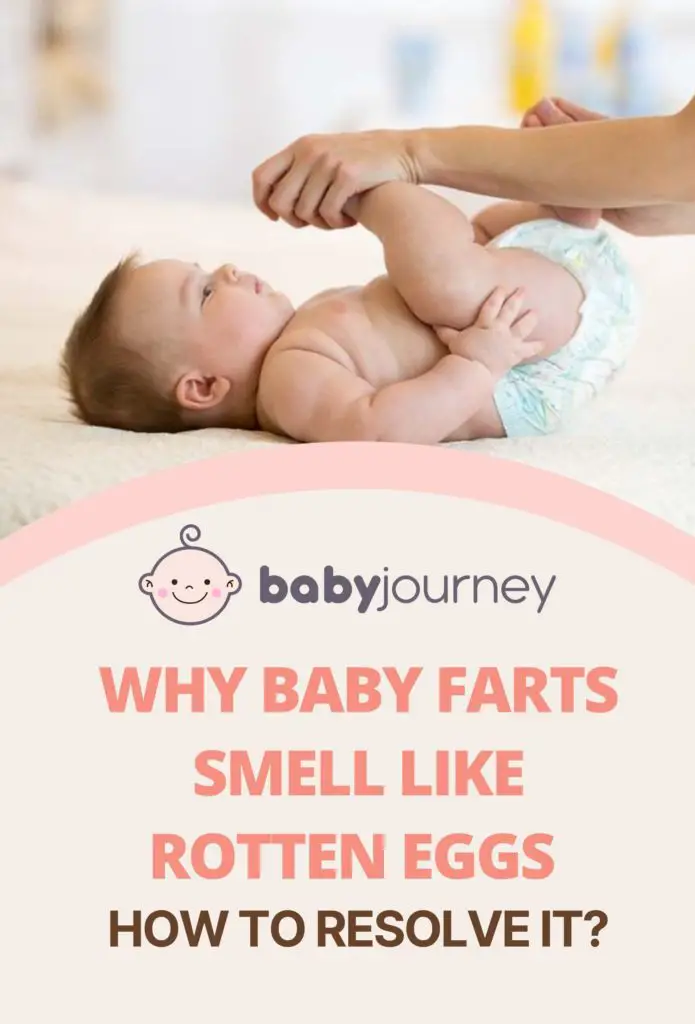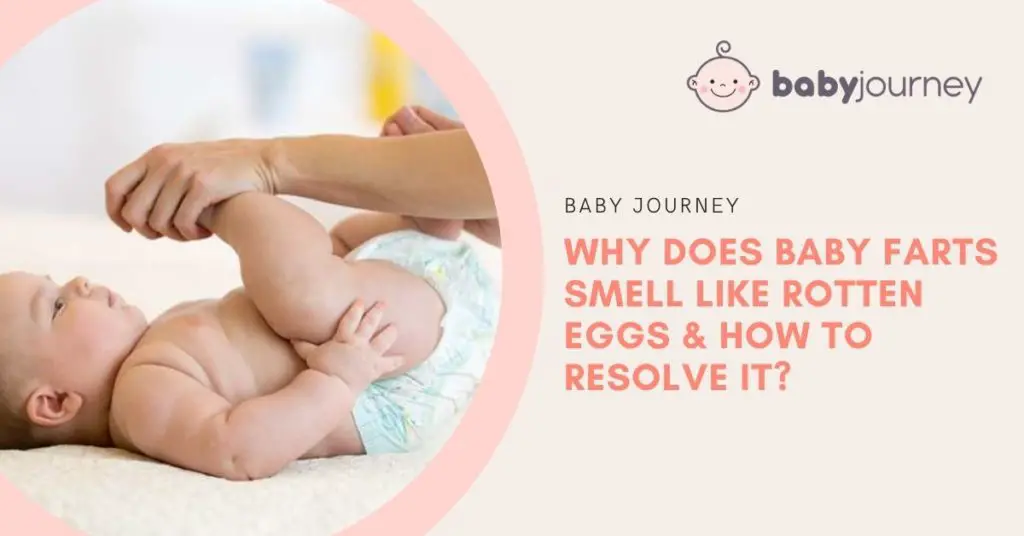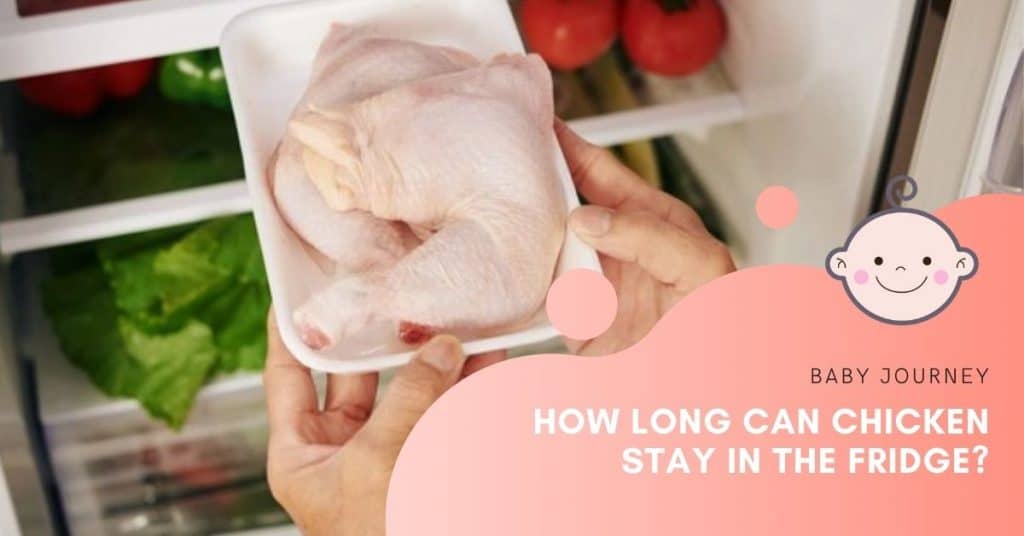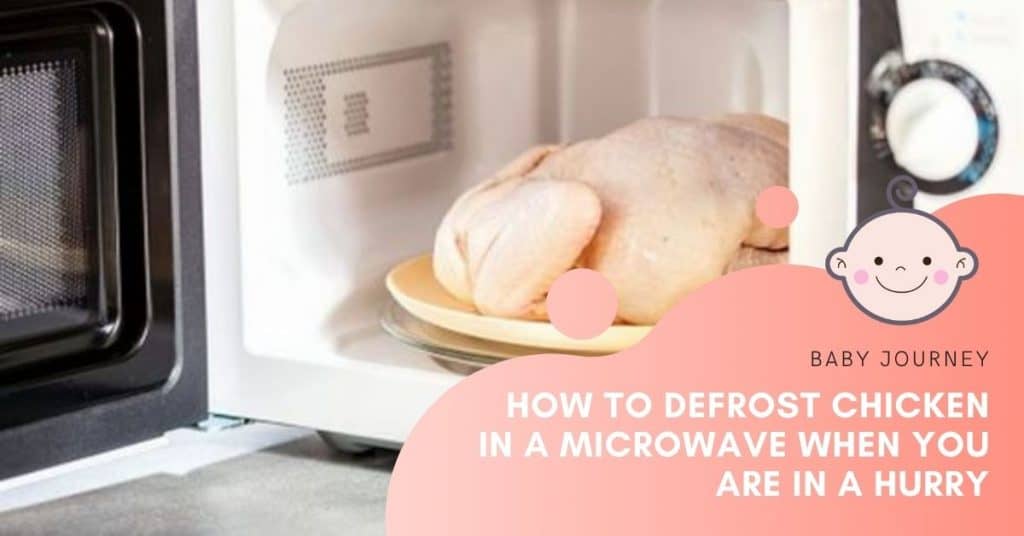Babies fart, and it is nothing to be worried about. However, if your baby farts and you notice a bad gas smell, you might be worried that your baby has a health problem, but the reason can be benign.
When baby farts smell like rotten eggs, it can be a sign of several things.
Additionally, if your breastfed baby gas smells like rotten eggs, the reason might be your diet. How to tell the reason behind infant smelly gas?
Keep reading to find out!
Why Does Baby Farts Stink?
Babies fart for several reasons. It can include air swallowing, which can happen during feeding. When a breastfed baby fart smells bad, it can be due to the mom’s diet.
Farting is part of normal digestive system development! Your baby is growing, building tolerance to various ingredients, either in formula or breastfeed milk. The process might include very foul-smelling gas, rotten egg fart, smelly poop, and other not so cute, but natural phases.
Certain medications can cause baby smelly farts. Are you breastfeeding and taking some medications? Has your pediatrician prescribed the meds to the baby? You can ask him more about meds the next time you see your pediatrician.
Additionally, babies spend a lot of time on their backs, which slows down the digestion process. Next, if your baby is constipated, you can expect smelly farts before the baby finally poops!
Baby smelly gas comes from ingredients broken down during the digestion process. Therefore, don’t worry, odors are normal, even though they are disgusting sometimes! I remember wondering how something so cute and tiny can produce such a horrible smell!

Identifying The Different Baby Smelly Farts
To help the baby and avoid baby smelly farts, first identify different farts smells (you can also keep a food diary to note down the smells and foods to identify the cause). The most common situations are baby gas smells like rotten eggs, but your newborn stinky gas can remind you of cabbage, skunk, sulfur, and other bad-smelling items.
Here is a quick overview of the most common baby smells and their causes.
Newborn Farts Smell Like Rotten Eggs
When your baby farts and you smell rotten eggs, the reason might be the baby’s digestive system. It can happen because a digestive system has trouble breaking down the lactose from breast milk or formula.
If a breastfed baby poop smells like rotten eggs, the reason might be the same. The same applies to formula-fed babies if the formula contains lactose. You can inform on different formula ingredients to be sure which formula to try.
A rotten egg fart smell can also be a sign of a stomach infection, called gastroenteritis. But, your baby will also have other symptoms, such as vomiting, fever, and diarrhea. If you notice any of the symptoms mentioned, consult with a pediatrician about your next steps.
Baby Fart Smells Like Sulfur
If a newborn gas smells like sulfur, the culprit is most likely the food with higher levels of sulfur, fiber, and starch. It can happen when you first introduce sulfur-rich foods or when a breastfeeding mother eats certain veggies.
Veggies such as broccoli, cauliflower, and Brussels sprouts cause unpleasant baby and toddler fart smells. This sulfur smelling gas go away quickly!
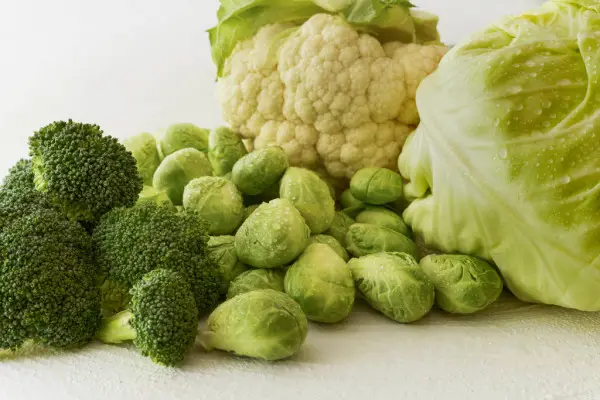
Baby Farts Smell Like Cabbage
When a breastfed baby gas smells bad and reminds you of cabbage, the reason might be your diet. You might have eaten cruciferous vegetables, including cabbage, bok choy, cauliflower, arugula, broccoli, etc.
Babies eating solid foods who had a recent meal that included mentioned veggies will most likely have gasses that smell like cabbage.
Baby Gas Smells Like Sour Milk
When newborn stinky gas reminds you of sour milk, the reason is lactose. Your baby might have food sensitivity or lactose sensitivity, lactose intolerance, or you might have just overfed the baby!
If baby’s farts constantly smell like sour milk, you might need to check if your baby has lactose intolerance or milk allergy.
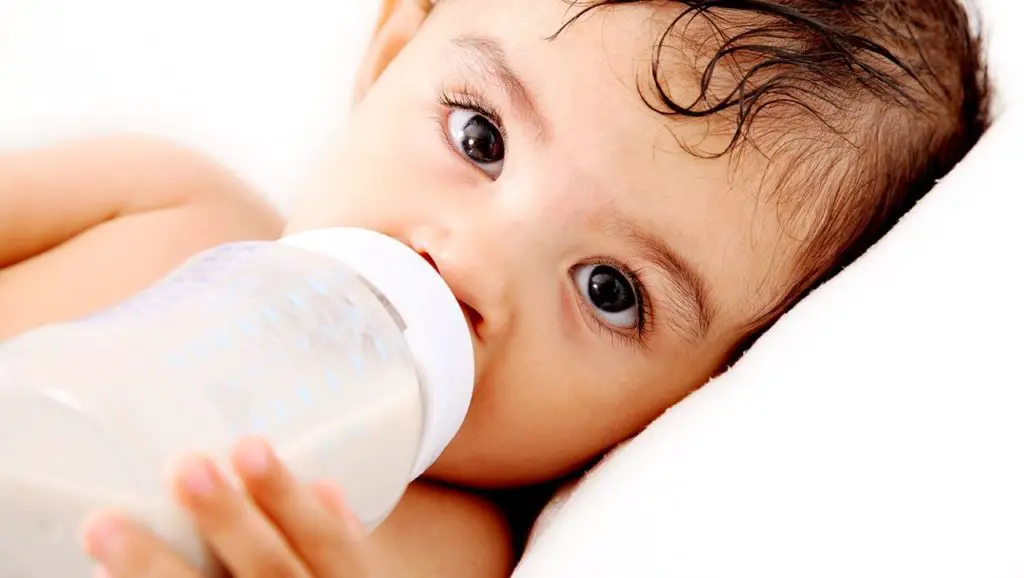 burps in babies. – Why Does Baby Farts Smell Like Rotten Eggs and What to Do to Resolve It? – Baby Journey” class=”wp-image-24173″ width=”512″ height=”289″/>
burps in babies. – Why Does Baby Farts Smell Like Rotten Eggs and What to Do to Resolve It? – Baby Journey” class=”wp-image-24173″ width=”512″ height=”289″/>Foul Smelling Gas in Child and Baby
Lactose can also cause foul-smelling baby farts. Additionally, these unpleasant gases can indicate infections, especially if you cannot find the culprit in your diet or your baby’s feeding pattern.
If your baby has a high fever and issues with stool, consult the doctor for further diagnostics.
Also, when baby farts smell like skunk it can be an indicator of poor nutrient absorption. If the unpleasant fart smell continues, and you cannot find the reason in the diet and food combinations, check with your pediatrician about a change in the diet or adding supplements or giving hypoallergenic formula.
Baby Passes Gas That Smells Like Plastic or Metal
Sometimes, when baby farts smell like metal or remind you of plastic, it can indicate some nutrient deficiency.
If the baby farts constantly smell like iron, analyze your diet (if you are breastfeeding) and your baby’s diet (if the baby has been eating solids). Some foods rich in iron may cause a metal smell in farts. These include red meat, nuts and dried fruits, cereals, liver, chickpeas, soy, etc.
In rare cases, food allergies to certain ingredients cause farts that smell like plastic or metal. Closely check if you notice a pattern to identify when baby gas smells bad.
Baby Farts But Without Smell
Baby farts without smell because of the air swallowed during feeding. It is completely normal. and all babies experience farts without the smell!
You can dry different bottles for feedings, such as Philips Avent Anti-Colic Bottle or similar models. These bottles are designed with air and prevent the baby from swallowing too much air.
How To Prevent Baby Gas That Smells Like Rotten Eggs?
Here are simple remedies that prevent a baby from experiencing stinky farts.
Watch What You Eat (for breastfeeding moms)
The food you are eating passes through the breast milk to the baby. In simple words, the food that makes you gassy with smelly farts will make your baby gassy as well. Ensure you have a diverse diet filled with beneficial nutrients and vitamins.
Also, avoid complex and spicy food that is hard to digest.
Change Baby’s Diet
If you have identified the foods that cause smelly farts in your baby, change the baby’s diet. Find the proper replacements for those ingredients to ensure a balanced diet for your child.
For example, if your baby is very gassy after eating, occasionally replace it with another baby superfood, such as spinach. If you formula feed your child, go for baby formula that can help to reduce gas.
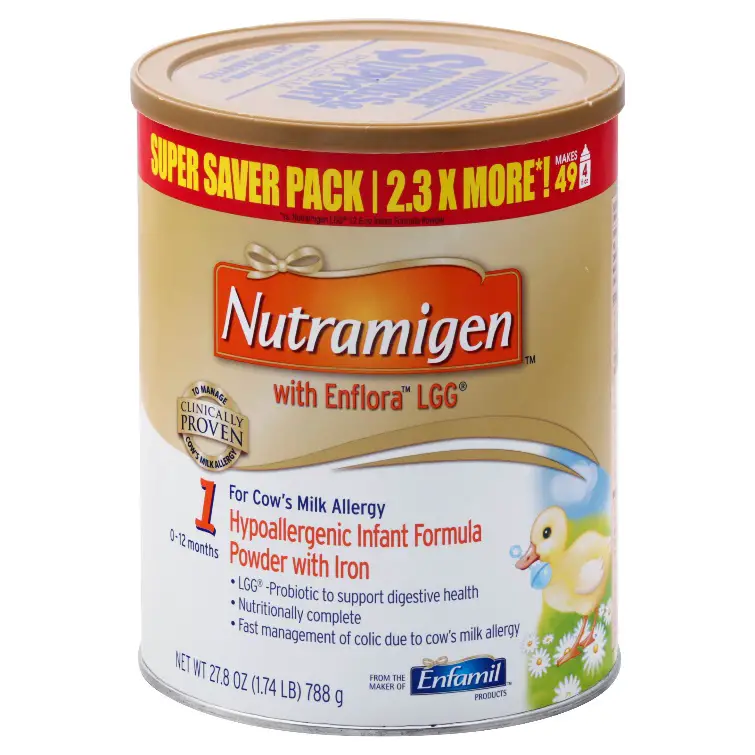
Stay Away from Dairy
A diet rich in dairy products can cause stinky farts in breastfed babies. So, you can limit the dairy products intake or stop eating them at all if your baby has a milk protein allergy.
Switch to a Slow-Flow Bottle
You can try various slow-flow bottles for feeding. These bottles allow the newborns to breathe normally during feeding, but not swallow the air.
Avent Natural Newborn bottle is a very slow-flow bottle, suitable for newborns and older babies with gas troubles. The pack includes faster-flow bottles you can switch to when the baby gets older. For more alternatives, check out our best slow-flow bottles article.
Try a Different Feeding Position
Sometimes, awkward feeding position could be the culprit for excessive gas that smells like rotten eggs. You can also try different positions for feeding to adjust the milk flow.
Try reclining on the back and keep the baby on the belly. The head should be above the breast or bottle. Therefore, the natural gravity will slow the milk flow and prevent the baby from overfeeding and swallowing air.
Remember, the best feeding position to avoid gas is when you hold the baby above the breast or bottle. Find the one that is most comfortable for you.

10 Foods That May Cause Rotten Egg Farts in Babies
Here is a quick section with the list of notable culprits for newborn smelly gas to help you adjust yours and baby’s diet. You don’t have to eliminate these foods from the diet. If you breastfeed, limit the intake of the following ingredients.
Additionally, serve them sparsely to the baby, as long as your kid is old enough to eat these food groups.
- Beans
- Broccoli
- Cauliflower
- Brussels sprouts
- Garlic
- Onion
- Dried fruits
- Cheddar cheese
- Asparagus
- Eggs
Other Baby Bowel Issues
Other than smelly farts, most babies struggle with other bowel issues. The potential problems may be temporary and pass away as the baby’s colon and digestive system fully develop, while others may require medical attention.
Here are several most common bowel issues that babies experience. But, first, let’s break the myth about baby pooping frequency!
Baby Doesn’t Poop
Babies don’t have to poop every day, especially in the first couple of months. If you feed your baby with breastfeed milk exclusively, you can expect the baby to skip pooping for several days in a row. It is normal because the baby takes all the nutrients from the milk for development!
Babies older than six weeks can sometimes don’t poop for a week! It is different from constipation. Also, formula-fed babies tend to poop more often than breastfed babies.
Constipation
The tummy in constipated babies is swollen, and the baby strains more to poop, but nothing happens. Constipated babies are fussy and discomforted with painful cramps.
Some babies that experience constipation have infrequent stool, and specific stool patterns. The poop might be soft, mushy, hard and small, like pebbles, or too liquid. Liquid stool passes around solid that prevents bowel movement. Sometimes, the poop has a clay consistency or even traces of blood.
Baby’s belly is hard to touch and most constipated babies experience a lack of appetite.
Constipated baby has smelly gas but no poop. The baby gets used to feeding, digestion, and bowel movement and may experience gasses and constipation as a standard development phase.
If you notice symptoms described, you can try belly massage, adding more fibers to the diet or gripe water. Administering a tiny amount of fruit juice made skinless apples and plums might help the babies poop easier. You can also give water.
Newborn Farting Alot
Farting is normal for babies and adults. There isn’t a textbook rule that states how much farting is normal.
All babies develop at their own pace, so the frequency of farting is individual and doesn’t indicate your baby has potential health problems. Some babies may fart several times per day, while others may fart over 20 times per day.
If you wonder why does my baby fart so much, don’t worry. An excessive farting phase will probably stop as soon as your baby’s digestive system develops.
The Baby Keeps Crying When Passing Wind
Sometimes, babies cry when passing wind because of stomach pain and too much air trapped in the abdomen. In these situations, the baby often pulls the legs toward the chest as a reflex reaction to pass the gas easier.
You can consult your pediatrician about administering remedies with simethicone, a substance that helps the gas to get out. Warm baths and exercises might help. You can lay the baby on the back and slowly move his legs to mimic the bicycle motions.
Baby Burps Smell Like Poop
Just like baby farts, the burps can also be smelly! Babies burp after feeding to relieve the air taken in through feeding. In most cases, burping doesn’t smell like anything and doesn’t cause discomfort in babies.
However, the reasons for smelly burps are like the reasons for smelly baby farts. Those include lactose intolerance and mom’s diet. Also, if your baby is taking antibiotics, it can mess up the gut balance and cause unpleasant burps.
Acid reflux is the culprit for particularly stinky burps. The content in your baby’s stomach rises alongside the bacteria and makes the burps quite smelly.
Conclusion
The little angels fart. It is a daily reminder that with babies, it isn’t all rainbows and unicorns! Baby gas can smell extremely unpleasant, trust me on that, I had three babies! All of them farted a lot, and it smelled bad occasionally.
The reasons behind smelly baby farts are diet, food sensitivities, allergies, overfeeding, and immature digestive system. In most cases, you have nothing to be worried about if your baby farts smell bad. However, if your baby has a fever, inconsistent stool, blood in the stool alongside smelly farts, you need to seek medical help.
I hope you find my baby farts guide useful! If you have more questions or you’ve been in a situation in which you’ve dealt with smelly farts, please share your experience! We can also stay in touch on Pinterest, @babyjourney0183 where I will be sharing more useful parents’ stories and guides!
—
